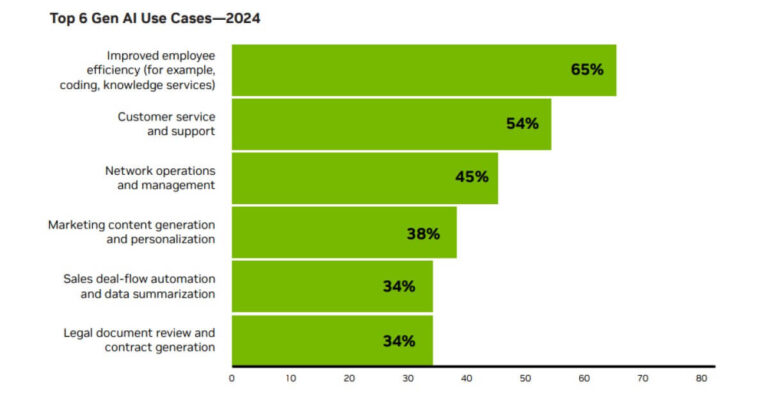Telefonica Germany’s Pioneering Cloud Transition
Telefonica Germany has embarked on a transformative journey, shifting one million 5G customers to Amazon Web Services (AWS). This pioneering transition represents the first instance in Europe where an existing mobile operator has relocated its principal network operations to a public cloud platform. According to reports, this strategic initiative positions AWS significantly within the European telecom market and signals a broader evolution in how telecom services are managed and delivered.
Cloud Migration Benefits and Telecom Industry Impact
The core network of Telefonica, consisting of high-performance servers in data centers, plays a vital role in securely routing data and calls at high speeds. The shift to a public cloud platform is intended to reduce operational costs, boost scalability, and enable quicker repairs without service disruption. The migration underscores a dynamic market where cloud providers like Amazon and Microsoft are seizing substantial revenue opportunities by serving the telecom sector.
Telefonica’s CTO, Mallik Rao, maintains a cautiously optimistic stance, planning to closely monitor the new cloud setup over the next few quarters. The goal is to transition 30-40% of their customer base to the cloud by 2025-2026. With 45 million customers in Germany, this strategic move could establish a benchmark, prompting other network providers to consider cloud adoption in their future strategies.
Market Dynamics and Strategic Shifts in Telecom
This strategic shift is widely viewed by industry analysts as a response to the growing influence of Big Tech in traditional telecom arenas. As networks increasingly become software-defined, traditional telecom operators are compelled to innovate to remain competitive against the burgeoning power of tech giants. The complex relationship between traditional telecom operators and Big Tech companies is evolving, marked by a mix of cooperation and competition.
Enhancing Telecom with AI and Machine Learning Technologies
The integration of artificial intelligence (AI) and machine learning is rapidly becoming a critical component of telecom operations, particularly with the ongoing expansion of 5G technologies. Many telecom executives acknowledge the significant role of AI in enhancing customer experiences and improving service delivery. This technological integration is expected to streamline operations, enhance network performance, and provide more personalized user experiences.
Worldwide Trends in 5G Network Deployment
The global rollout of 5G infrastructure is progressing swiftly, with efforts ranging from smaller nations like Fiji and Samoa, partnering with Nokia, to major powers such as China and the United States, advancing their 5G capabilities. This widespread adoption underscores the transformative impact of 5G technology globally, across various regions and market scales.
The Strategic Repercussions of Telefonica’s Cloud Adoption
The pioneering shift of Telefonica Germany to AWS cloud is more than just a technical upgrade; it represents a strategic realignment of how telecom services are likely to be delivered in the future. As this collaboration between a leading telecom operator and a cloud giant unfolds, it is expected to influence industry standards, operational strategies, and competitive dynamics across the global telecom landscape. This partnership between Telefonica and AWS could potentially pave the way for new efficiencies and innovations within the telecom sector, reshaping industry expectations and methodologies.
Expanding the Horizon: O2 Telefónica’s 5G Cloud Core Initiative
O2 Telefónica announced its 5G Cloud Core – a new 5G cloud network built entirely in the cloud, utilizing technologies from European network equipment provider Nokia and Amazon Web Services (AWS). This development is a significant evolution in the telecom industry, marking the first time a telecom operator is migrating its existing network and customers to a new 5G cloud network running on AWS. The 5G Cloud Core aims to provide a superior network experience for customers using the “5G Plus” standalone network, offering operational advantages like faster and more cost-effective software updates and easier deployment of new 5G services.
Technical Innovations and Strategic Benefits with AWS
O2 Telefónica has leveraged AWS‘s advanced technologies to ensure high availability and scalability of the Nokia 5G Core in the cloud. The architecture employs AWS Region and Availability Zones to create a resilient and fault-tolerant setup. For instance, traffic is automatically rerouted to other servers during any disruptions, ensuring uninterrupted service. This setup allows O2 Telefónica to manage its network more efficiently, reducing the time and cost associated with upgrades and maintenance.
Matthias Sauder, Director Mobile Access Network at O2 Telefónica, highlighted the choice of AWS for its robust data security and sovereignty capabilities, which are critical for delivering an excellent 5G experience and supporting new digital applications. The network utilizes AWS services like Amazon Elastic Kubernetes Service (EKS) for orchestration, Amazon EC2 for handling various workloads, and AWS Direct Connect for secure connectivity, among others. This strategic deployment not only secures sensitive data but also sets new standards for network quality and security in the telecom industry.
Jan Holfmeyr, Vice President, EC2 at AWS, expressed pride in being selected for this groundbreaking project, noting that AWS’s unmatched experience and reliability are instrumental in building O2 Telefónica’s future-proof 5G Cloud Core network.

















